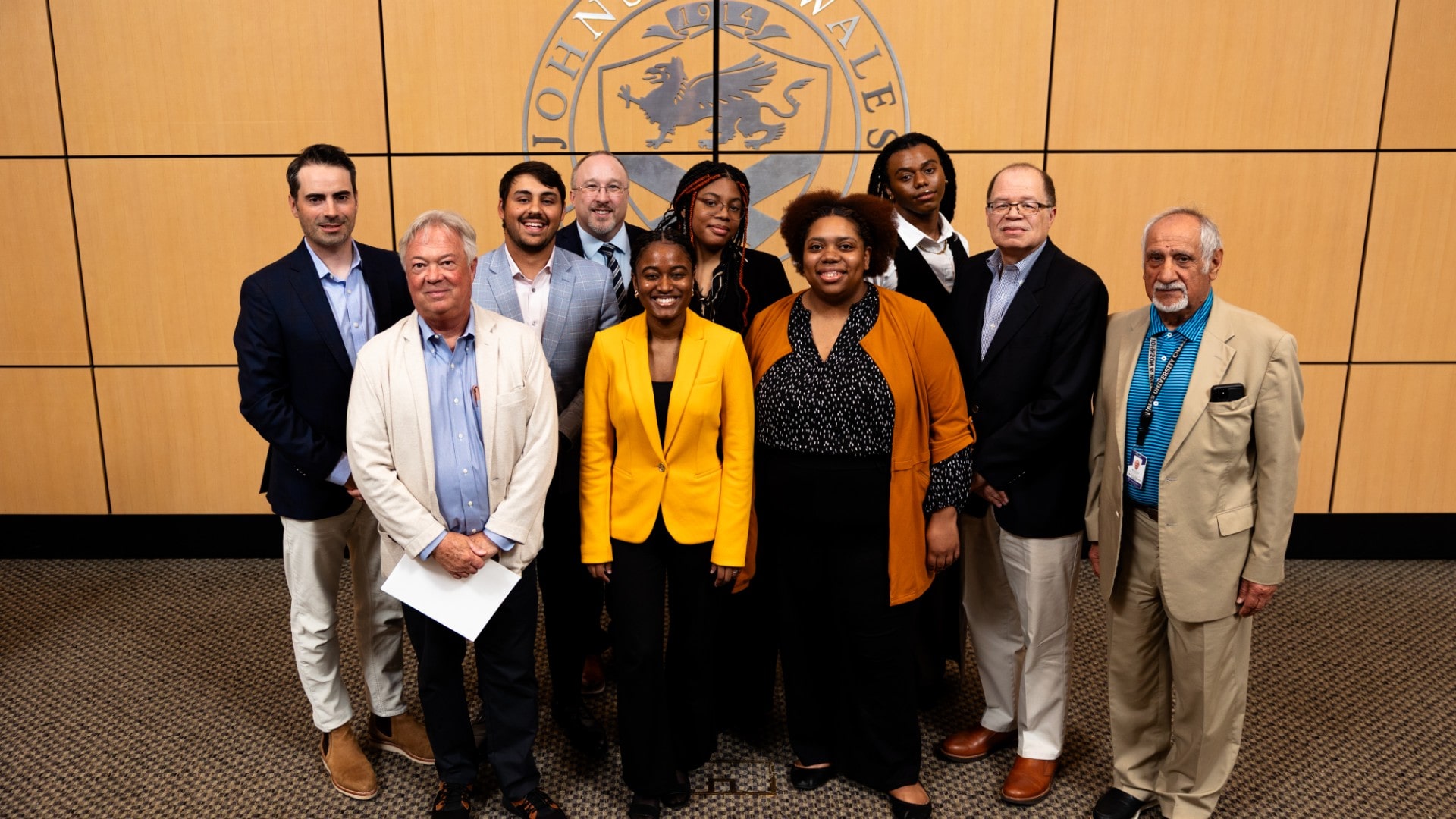Top 10 Reasons to Study Tourism (Some May Surprise You)
Ever envision yourself leading tours of exotic, international locations? Maybe you’d love to head out onto the high seas as a cruise director. Or how about working with clients to plan their ultimate vacation, making sure every detail is taken care of to make their trip as memorable as possible?
Sound like you? Then the tourism industry might be the perfect fit.
Three of JWU’s International Travel & Tourism Studies faculty members (Professor Eldad Boker, PhD; Assistant Professor Bryan Lavin, MBA, CHE; and Assistant Professor Tiffany Rhodes, DMin, CHE) list the top 10 reasons to study tourism — and why the best place to prepare for your career is JWU.
1. You’re interested in joining a booming industry
Tourism is the largest service sector industry in the world — and it continues to grow. In fact, according to the Global Business Travel Association, global travel spending is expected to reach $1.6 trillion by 2020. You'll find endless opportunities to pursue career paths in areas that range from high-end travel to rugged outdoor adventure, and even management and event planning.
2. You want to follow the money
Getting in at the ground level can help. A recent study by the US Travel Association found that, overall, Americans whose first job was in a travel-related industry obtained an average career salary of $81,900. And nearly 40% of workers who began their career in travel reached an annual career salary of more than $100,000.
3. You like working with people
You’ll have lots of opportunities to meet new people during both your academic and professional life — after all, the tourism industry is about cultivating relationships and making connections. The JWU community is diverse: Our students come from all 50 states and 100+ countries, allowing you the opportunity to experience different cultures and customs right on campus — creating experiences that will serve you well in the tourism industry.
4. You want to stand out from the crowd
It’s forecasted that, due to rapid growth, the tourism industry will face a shortage of skilled employees in the coming years. By gaining a holistic view of the tourism and hospitality industries through JWU’s College of Hospitality & Business, you'll master the skills necessary to help fill this need and position yourself for an impactful career — helping you stand out from the crowd.
5. You’re looking for transferable skills
Tourism has an impact on almost every industry — something JWU has recognized for decades. Marketing, conflict management, negotiation, sustainable business strategies, event planning and more are among the many skills needed to succeed in the industry.
At JWU, acquire these skills and more by taking part in planning a Familiarization (FAM) Tour, for which you and your team research, negotiate schedules and implement a once-in-a-lifetime tour to an exciting destination, either in the US or abroad. You’ll get industry-based experience that prepares you for life in the tourism industry.
6. You embrace opportunities to travel and visit new places
It may seem obvious, but it's also one of the most important reasons to join the industry. And since your experiences at JWU go far beyond the classroom, you’ll get the opportunity to experience course topics firsthand: Travel on student-led tours, intern within the industry, take classes at various locations, study abroad, and obtain the JWU Global Learning Distinction.
7. You enjoy solving problems on the go
Problems and crises can happen at any time in the tourism industry, and successful industry professionals are the ones who know what to do when problems arise. Your JWU experience can help you hone all-important skills in problem solving and conflict management through your coursework, FAM trip and internship.
8. You want to be part of a legacy
Tourism is an industry that can create change, drive economies, preserve history and culture, and achieve balance and prosperity for communities. And at JWU, our courses are designed to explore sustainability and the positive impacts that tourism can have on society.
9. You want to leave a lasting impression
At the end of the day, it’s about making memories. Help enrich the lives of others by creating experiences that leave lasting impressions.
10. You crave adventure — and fun
No two days in the industry are the same. This fast-paced, ever-changing field provides the perfect opportunity to unleash your creativity to enhance travelers’ experiences. Get started during your time at JWU through student organizations, traveling, academic courses and internships, and be prepared for any direction in which the tourism industry may take you.



